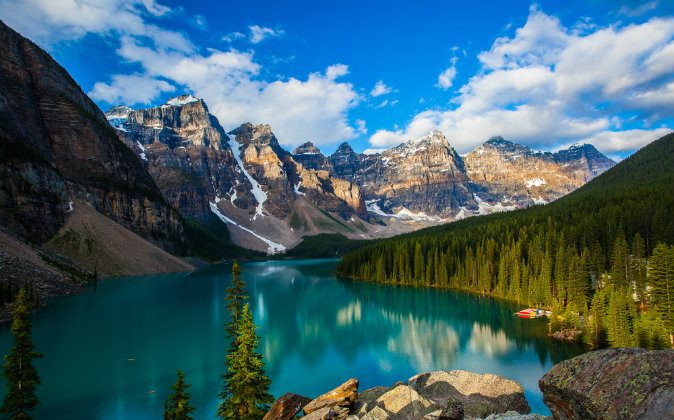Commentary
Let me start by acknowledging that this column was plagiarized on a stolen computer by a notorious brute. Now, let’s work together to create a better, brighter world by following my lead. Huh? You wouldn’t take advice from a dishonest thug and believe I should return the laptop to its rightful owner? Then you might want to steer clear of Canada.
Here, every high-profile or public-sector event begins with a solemn acknowledgment that we are on stolen land. Sometimes it’s referred to as “traditional” or perhaps “unceded.” But often it’s labeled as “unsurrendered.” This practice is false, hypocritical, and damaging.
The hypocrisy of it all is hard to swallow. The individuals who self-righteously claim to be on someone’s stolen land have no intention of returning it because they don’t truly believe it is stolen or they don’t see stealing as a bad thing.
Instead of addressing the real issues, there is a pervasive narrative that portrays a second-generation prime minister born into privilege as an outsider and a rebel, while diversity, equity, and inclusion (DEI) activists focus on rooting out systemic racism in the public sector and corporate world. This selective targeting is not only hypocritical but also misleading.
This narrative is false. Canada is not a racist country and is not located on stolen land.
Most people condemn the tragic clash between Europeans and the indigenous peoples of the Americas. If promises were made to aboriginal leaders in the past and not fulfilled, in a free and fair country like Canada, their descendants have legal recourse through the courts. However, the falsehood runs much deeper.
There is a narrative that portrays aboriginals as being without sin before the arrival of Europeans, living in harmony with nature and each other. Their minimal impact on the environment was due to primitive technology, not some innate “green gene” that the rest of us lack, nor were they pacifists until Europeans arrived.
Even aboriginal groups that were not nomadic were constantly either seizing land or fleeing from it. The Indigenous people encountered by Jacques Cartier at Stadacona had disappeared by the time Champlain arrived a few decades later. Yet, erasing evidence and silencing opposing oral traditions in non-literate societies does not legitimize conquest; it merely conceals the truth.
In my youth, events, including the school day, typically started with the Lord’s Prayer until it was decided that not everyone believed in it or meant what they said, and so it was discontinued. While social cohesion and appropriate rituals are important, I doubt that most of those who recite these acknowledgments truly believe them.
Recently, I sat through yet another virtue-signaling land acknowledgment and discovered that many at the table were silently offended. Despite the intimidation by the elite on woke causes, building a just society on hypocrisy, lies, and fear is unsustainable.
The widespread official lies about “Our home on native land” pose a social hazard. They undermine trust in official institutions, including among aboriginal communities who hear false promises, and among regular citizens who witness the elite filling Canada with immigrants who may not have a connection to this distorted historical narrative. However, let’s not focus solely on the outcome.
The main issue with these land acknowledgments is their hypocrisy and falsehood. Living a lie is not in line with Canadian values.
Opinions expressed in this article are solely those of the author and do not necessarily reflect the views of The Epoch Times.
Could you please rewrite this sentence?
Source link







